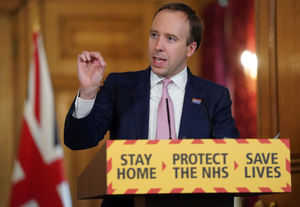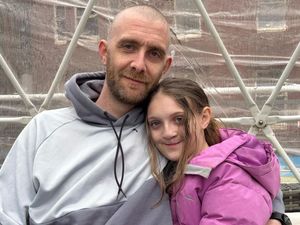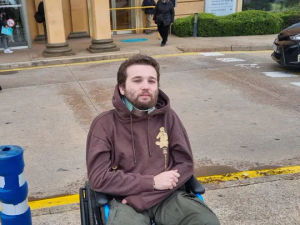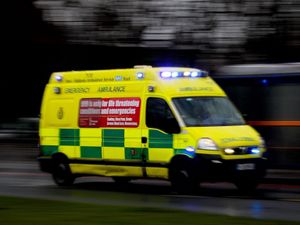Millions of people now eligible for Covid-19 tests
Health Secretary Matt Hancock is aiming to reach 100,000 tests per day by next Thursday.

Millions of people are now eligible for a coronavirus test under an expansion of the testing programme announced by Health Secretary Matt Hancock.
As he seeks to reach his 100,000-tests-a-day target, Mr Hancock said key workers and anyone in their household will now be eligible for tests if they have symptoms of Covid-19.
Key workers on the list are the same as those for access to schools, and include NHS and social care workers, police officers, teachers, social workers, those in the justice system, undertakers, some in local government, supermarket and food production workers, journalists, transport workers and some people in utilities and IT.
Mr Hancock set out his plans for “easier, faster and simpler” testing so that more people can access a Covid-19 test to tell them whether they currently have the virus.
He said people can register for a test on the gov.uk website.
People will then receive a text or email with an appointment at a drive-through centre or can request a home test kit, although the latter are currently in limited supply.
A help desk has been established to aid the process, while mobile units run by the Army are travelling around the country to where they are needed, such as care homes.
Test results from the drive-through sites will be sent out by text within 48 hours, and within 72 hours of collection of the home delivery tests.
At the daily Downing Street briefing, Mr Hancock said the capacity for carrying out tests was now “ahead of our plans”, with the ability to carry out more than 51,000 tests a day.
“Because capacity has now increased so substantially, we are now able to expand who can get the tests,” he said.
“Our ultimate goal is that everyone who could benefit from a test gets a test.”
Essential workers will be able to book coronavirus tests direct, while companies will also be able to book them for employees.
Mr Hancock said: “From today, employers of essential workers will be able to go on gov.uk to get a test for any of their staff.

“From tomorrow, any essential workers who need a test will be able to book an appointment on gov.uk themselves, directly.
“It’s all part of getting Britain back on her feet.”
The test involves taking a swab of the nose and the back of the throat, which can be done by the person themselves (self-administered) or by someone else.
Mr Hancock also set out more details on contact tracing, which is seen as a key route out of the lockdown.
By isolating people with the virus and then tracing their contacts and isolating them, the hope is that regional outbreaks of the virus can be kept under control.
Northern Ireland plans to introduce a pilot of contact tracing next week, while Mr Hancock said the infrastructure for England would be in place within a “matter of weeks”.
He refused, however, to tie the launch of contact tracing with the date of May 7 – the day on which the current lockdown measures are reviewed by ministers.
Mr Hancock said 18,000 people are now being recruited to help with contact tracing, 3,000 of whom are clinicians and public health experts, with training for the remaining 15,000.
A contact tracing app will also be launched so people can tell the NHS when they have Covid-19 and their contacts can be sent an alert telling them to isolate.
Mr Hancock has come under sustained pressure over his 100,000-a-day target after the number of tests carried out has failed to match capacity.
Downing Street said 22,814 coronavirus tests were carried out in the 24 hours up to 9am on Wednesday in England, Scotland and Wales, while capacity is now 51,121 a day.
Professor John Newton, the Government’s Covid-19 testing co-ordinator, said new types of tests, including ones that do not rely on reagents currently in short supply, would help the Government reach its 100,000-tests-a-day target.
He said there would soon be 58 drive-through testing centres, while a UK rapid testing consortium is working on antibody tests that people could use at home to tell them whether they have had the virus in the past.
It comes after Scottish First Minister Nicola Sturgeon published a document saying the lifting of restrictions in Scotland will be a phased process, with pubs among the last things to reopen.
The document says social distancing and frequent hand washing will need to stay in place even as people are given more freedom, with measures “at home, on the streets and in the workplace”.
But the document does not rule out the need for further full lockdowns if necessary and suggests people currently shielding are likely to be told to remain indoors.
Ms Sturgeon said the publication is a “first cut” designed to start an “adult conversation”, and she insisted she will be “frank” with the people on her Government’s plans.
She also said all pupils might not be able to attend school at the same time because of social distancing rules.
Mr Hancock said: “We set out the five tests that are needed for us to make changes to the lockdown measures and the Scottish Government’s proposals are based on those tests.”
He added: “The UK-wide approach is the best way to go.”
Asked about the UK’s death toll, which now stands at 18,738 in hospitals with thousands more in care homes, England’s chief scientific adviser Sir Patrick Vallance said it was difficult to speculate what the final numbers would be.
Last month, Stephen Powis, the medical director of NHS England, said a death toll under 20,000 would be a good outcome.





